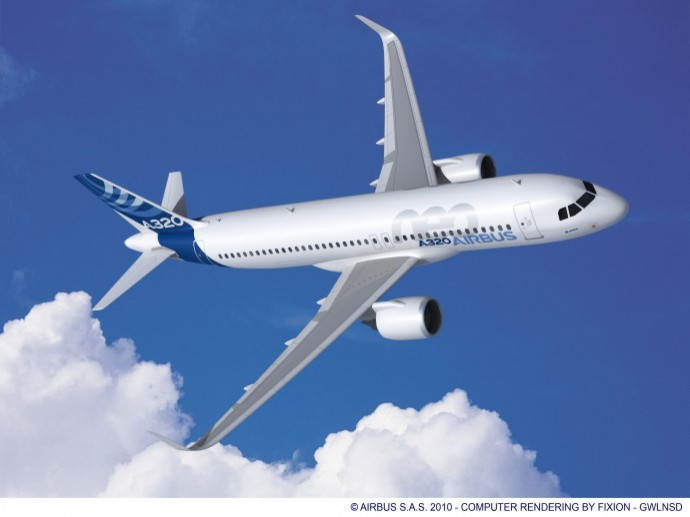Airbus confirms $1.3 bln investment to revamp A320 engines

Airbus, a unit of the European Aeronautic Defense and Space Co, on Wednesday confirmed its plans to invest $1.3 billion in upgrading its A320 jetliner with new state-of-the-art engines.
With deliveries starting in spring 2016, Airbus now provides customers a choice between CFM International's LEAP-X engine and Pratt & Whitney's PurePower PW1100G engine.
Both the engines offered by the rival companies are still in the stage of development and testing with Pratt's Geared Turbofan expected to be certified earlier followed by the LEAP -X from CFM.
However, Rolls-Royce Plc, which teamed with Pratt & Whitney on the original A320, has opted out of the upgrade project.
With the announcement of Airbus' upgrading program, the aviation industry now awaits word from rival Boeing on whether it will upgrade its competing 737 narrow-body.
Boeing really needs to watch this. They might have to play catch-up if they start losing customers, Richard Aboulafia, an aerospace analyst with the Teal Group, told Reuters.
The new engine option, known as the A320neo, incorporates fuel-saving large wing tip devices called 'Sharklets'. These devices are particularly designed to enhance the eco-efficiency and payload-range performance of the A320 Family.
Offered as a forward-fit option, Sharklets are expected to result in at least 3.5 percent lower fuel burn over longer sectors.
To overcome the fragile recovery from recession, the entire aviation industry has been under pressure for some time to offer fuel-efficient solutions. Until now, both Airbus and U.S. Boeing have tried to resist changes in their winning designs.
However, with the evolution of the low-cost airline industry, they are being forced to offer changes to prevent newcomers take up a major share of the industry.
We are confident that the A320neo will be a great success across all markets and with all types of operators, offering them maximum benefit with minimum change. We are leveraging a reliable, mature aircraft and are making it even more efficient and environmentally friendly, Tom Enders, Airbus President and CEO, said in a statement.
Airbus claims that the A320neo will not only deliver significant fuel savings of up to 15 percent but will also cause double-digit reduction in NOx emissions.
© Copyright IBTimes 2025. All rights reserved.





















